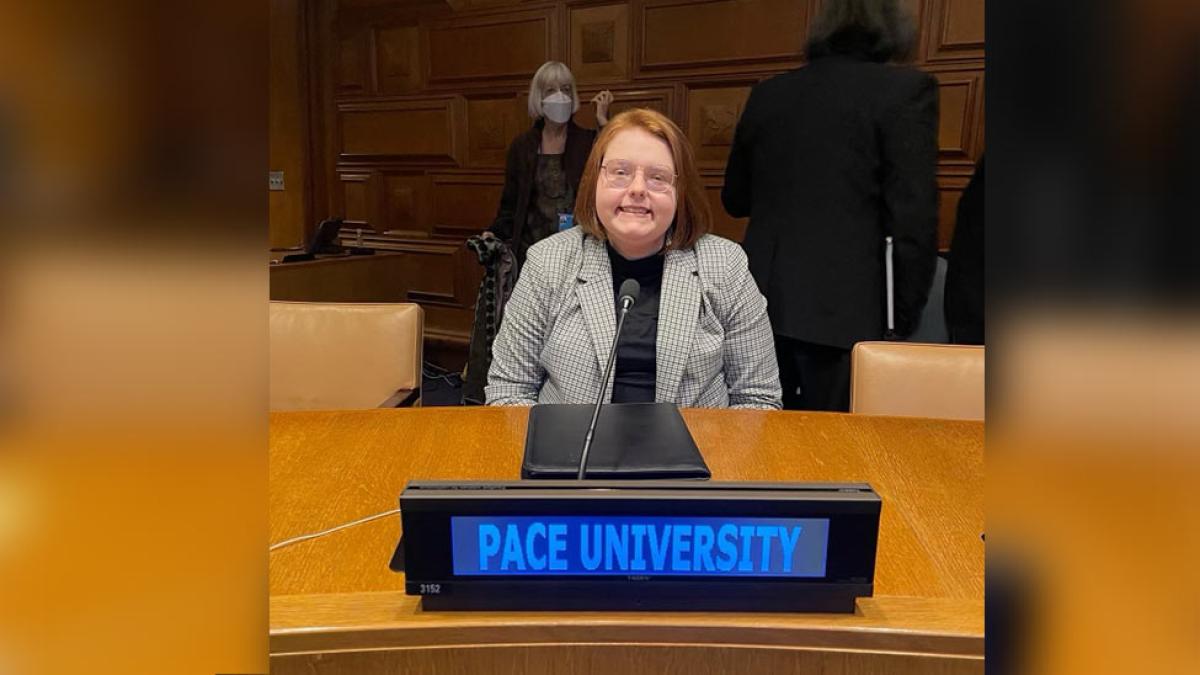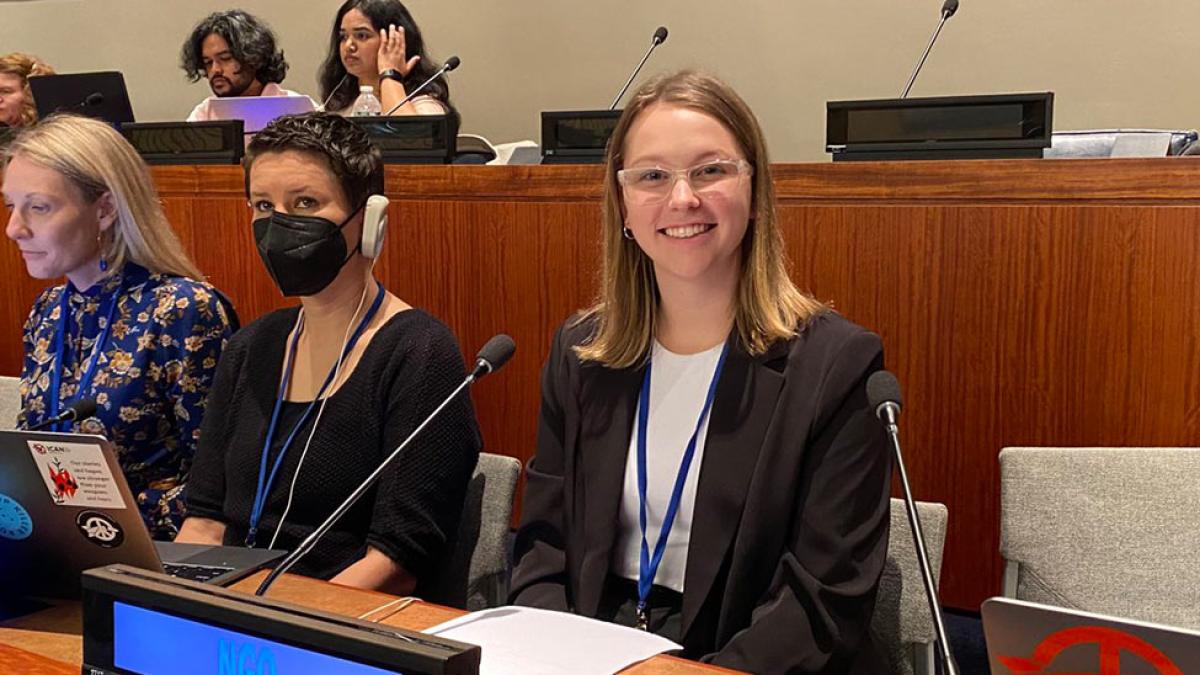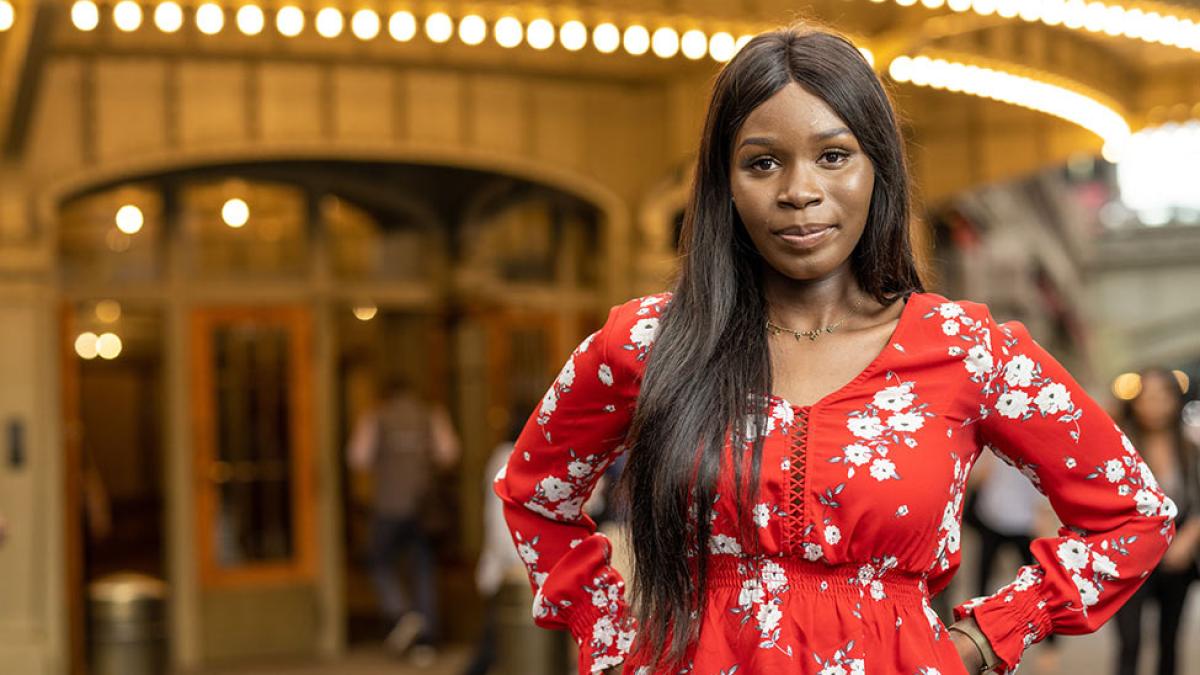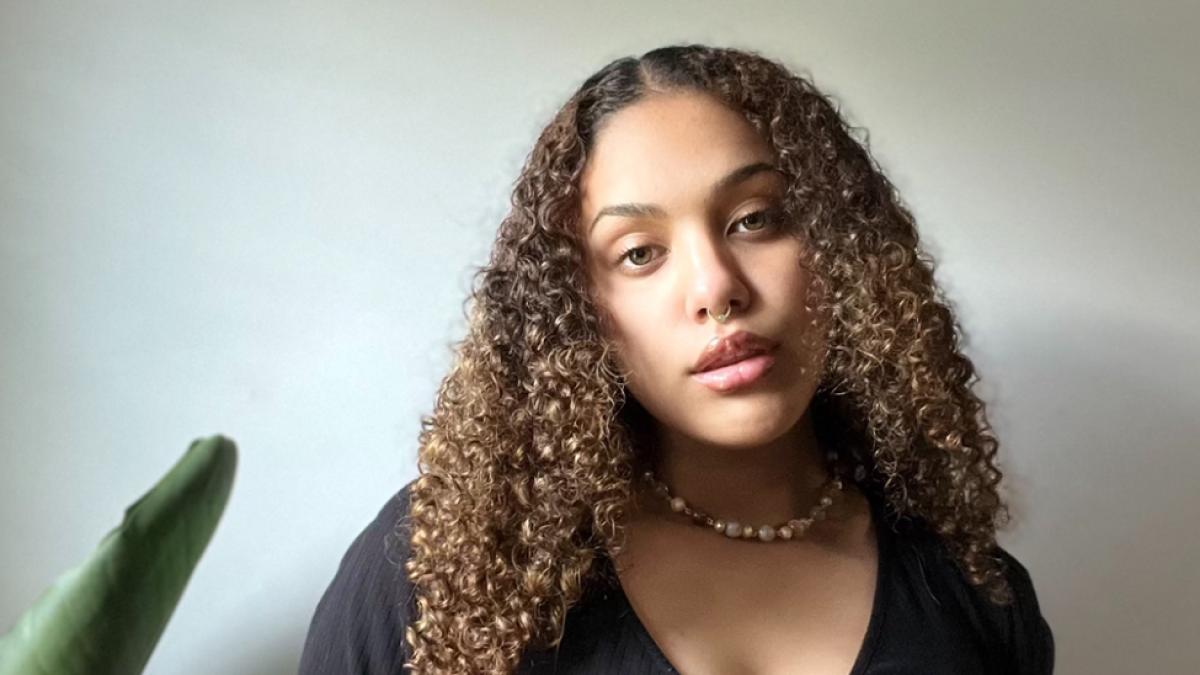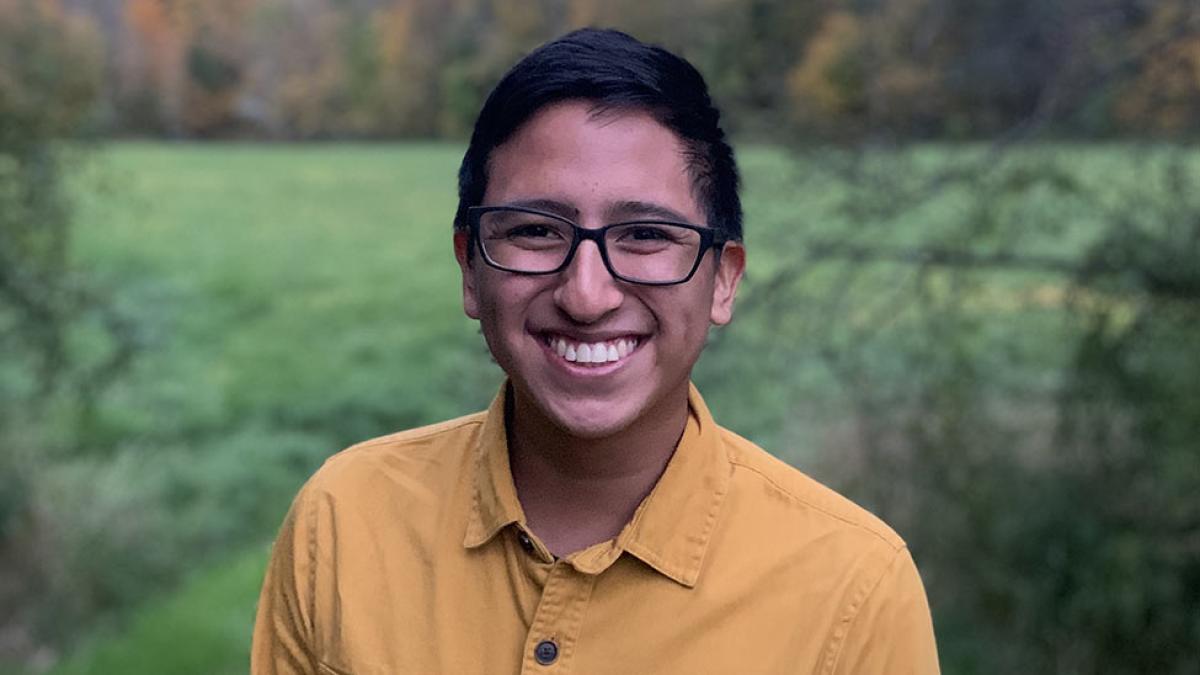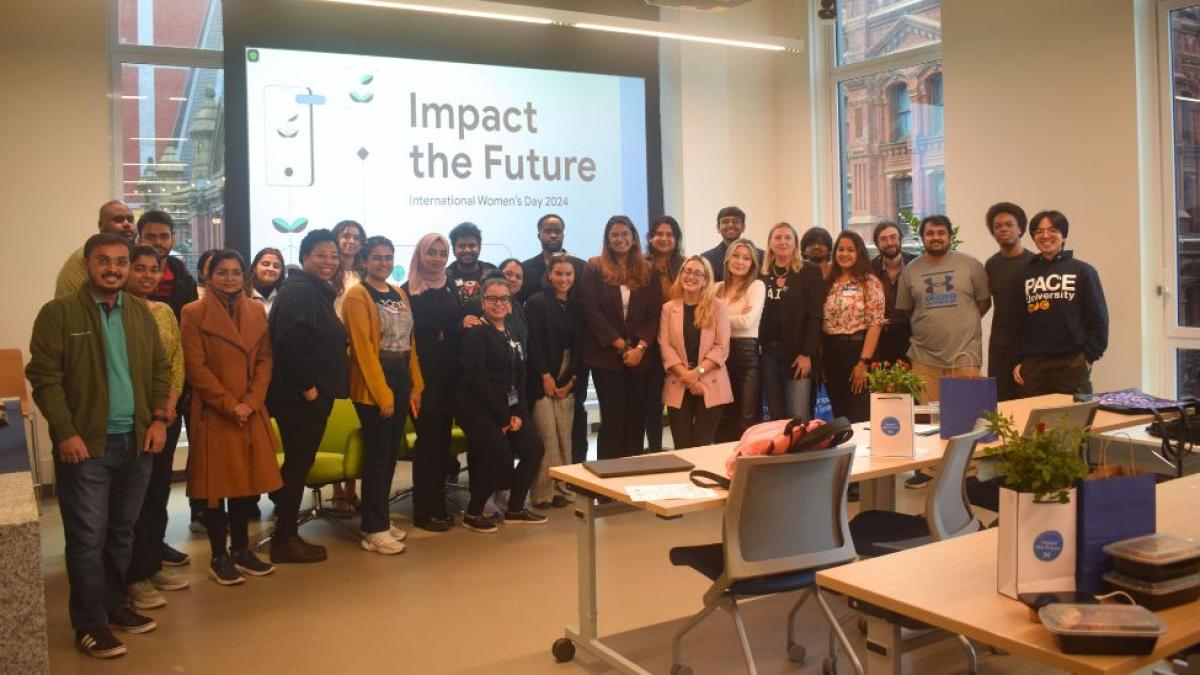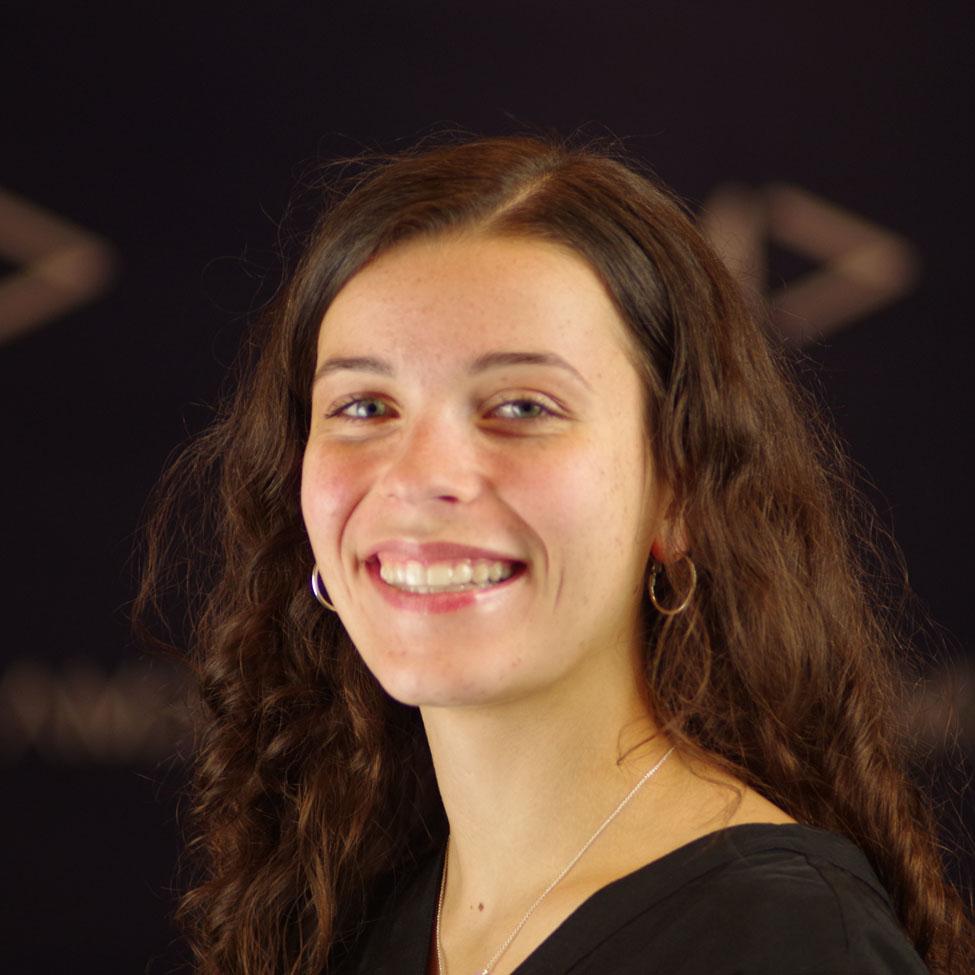
Watch the Full Spectrum News Governor's Debate
Gov. Kathy Hochul and Rep. Lee Zeldin met Tuesday at Pace University in Manhattan for their first and only scheduled debate for governor ahead of the Nov. 8 election.
As crimes and complaints about e-bikes increase in NYC, so do calls for regulation
In the past few years, the use of e-bikes, e-scooters, battery-powered mopeds and other two- or three-wheeled vehicles has grown ... Even more disturbing, said Pace University criminologist and former NYPD lieutenant Darrin Porcher, PhD, is that more serious crimes involving perpetrators on e-scooters and e-bikes are becoming more frequent. Those crimes, include a shooting in Sunset Park, Brooklyn last week by an e-scooter driver who hit multiple unoccupied cars, are becoming higher in number. A man on an e-scooter of some kind also allegedly attacked and sexually assaulted women last month in Fort Tryon Park in Upper Manhattan. Porcher called for greater NYPD action. “Carve out an additional unit that can have the sole focus of looking at these people that are on these e-bikes, scooters and dirt bikes,” he said.
Requiem for John Durham
John Durham is no exception. Bennett L. Gershman is a distinguished professor at the Elisabeth Haub School of Law at Pace University, and is the ...
Breaking Into Marketing With Leah Gaffney '22
Lubin alumna Leah Gaffney '22 discusses how she landed several different leadership positions on campus, how she created opportunities for herself, and her words of advice to current students navigating school, work, and life.
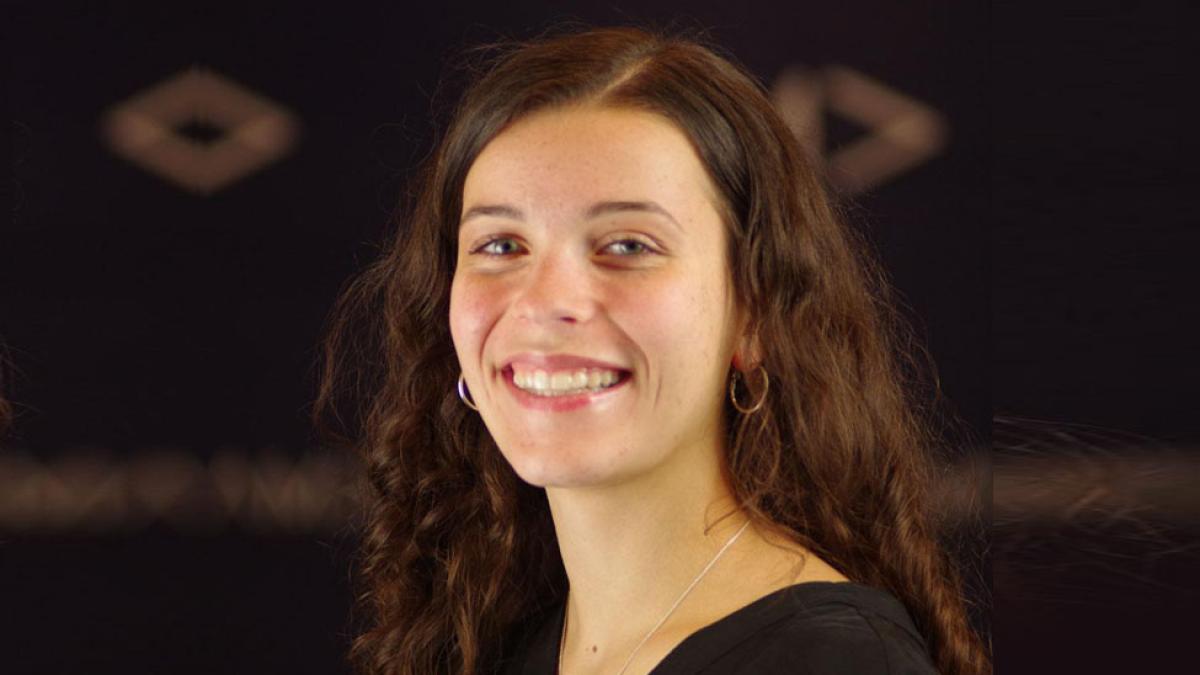
The Lubin Link Podcast

Leah Gaffney '22 discusses how she landed several different leadership positions on campus, how she created opportunities for herself, and her words of advice to current students navigating school, work, and life.
This episode was recorded on October 28, 2022.
Tune into the Lubin Link podcast to hear how guests went from go-getting Lubin students to successful entrepreneurs, social media mavens, directors, CEOs, and beyond. They offer their best tips to students and share how you can make the most out of your #LubinLife.
A Go-Getter Uses Challenges to Build Resilience
As Elias continues to gain experience in the field, his resolve to find a program that fits his career goals has been rewarding. He is employed at an outpatient clinic, New York Hand Therapy (NYHT) in Park Slope, with a new goal to become a certified hand therapist. He thanks Pace and NYHT for the education, mentorship, and guidance throughout his journey.
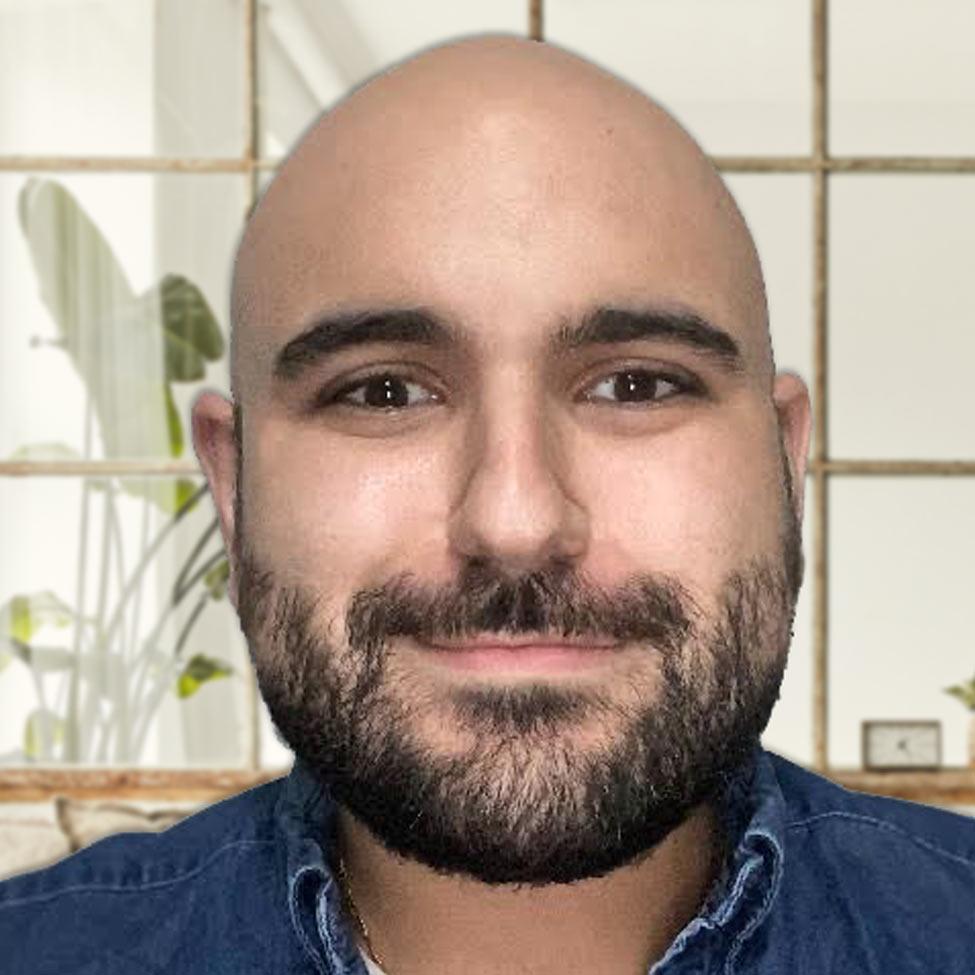
Reaching a career goal has its challenges, but Go-Getters know how to face these challenges head on. Occupational Therapy (OT) alum, Elias Fraija ‘21, was determined to fight for his passion. Through perseverance and resilience, he made it happen.
After beginning his career as an audio/visual technician working at Apple; Elias realized he wanted to pursue a career that allowed him to connect with people while combining his interests for health, wellness, and technology. He decided that a career in occupational therapy was going to be a perfect fit.
Elias had previously earned a bachelor’s degree in Psychology. When he applied at other schools for an occupational therapy master’s program, he was told he did not have the required prerequisites to get accepted. He was determined to make it happen, so he began earning observation hours and taking courses to complete those missing requirements. He continued applying with disappointing results, but he persisted every year.
He noticed that Pace was launching a new OT program and was recruiting its first cohort of students. “I saw it as a sign to take another chance and apply to the program. I felt that all those rejections led me to this opportunity, and it was meant to be my future,” he said. While the many disappointments may have discouraged someone else, it only made him more determined.
Elias’ cohort had the unique experience of being the pioneers of the Pace OT program, in addition to surmounting the obstacles brought on by COVID-19 and adjusting to remote learning. “Pace and the pandemic taught me how to think outside the box. Understand how something is typically done and find a way to be creative and achieve results,” said Elias. His studies in psychology provided a foundation that allowed him better navigate interactions with patients and his technology experience helped him to quickly learn and understand virtual assistant technologies.
“Pace and the pandemic taught me how to think outside the box. Understand how something is typically done and find a way to be creative and achieve results.”
—Elias Fraija
As Elias continues to gain experience in the field, his resolve to find a program that fits his career goals has been rewarding. He is employed at an outpatient clinic, New York Hand Therapy (NYHT) in Park Slope, with a new goal to become a certified hand therapist. He thanks Pace and NYHT for the education, mentorship, and guidance throughout his journey. “Pace taught me to accept new challenges, be an evidence-based practitioner, and that learning never stops as a healthcare provider,” he said. Elias faced his challenges and as a Go-Getter, he continues to conquer them!
Millennium Fellow Lulu Okeke ’24 Represents Pace at United Nations Day
As part of the United Nations Millennium Fellowship, Lulu Okeke ’24, Global Professional Studies, represented Pace at an Academic Impact panel session called “Higher Education and Multilateralism: Academia Responding to Global Challenges” as part of UN Day.
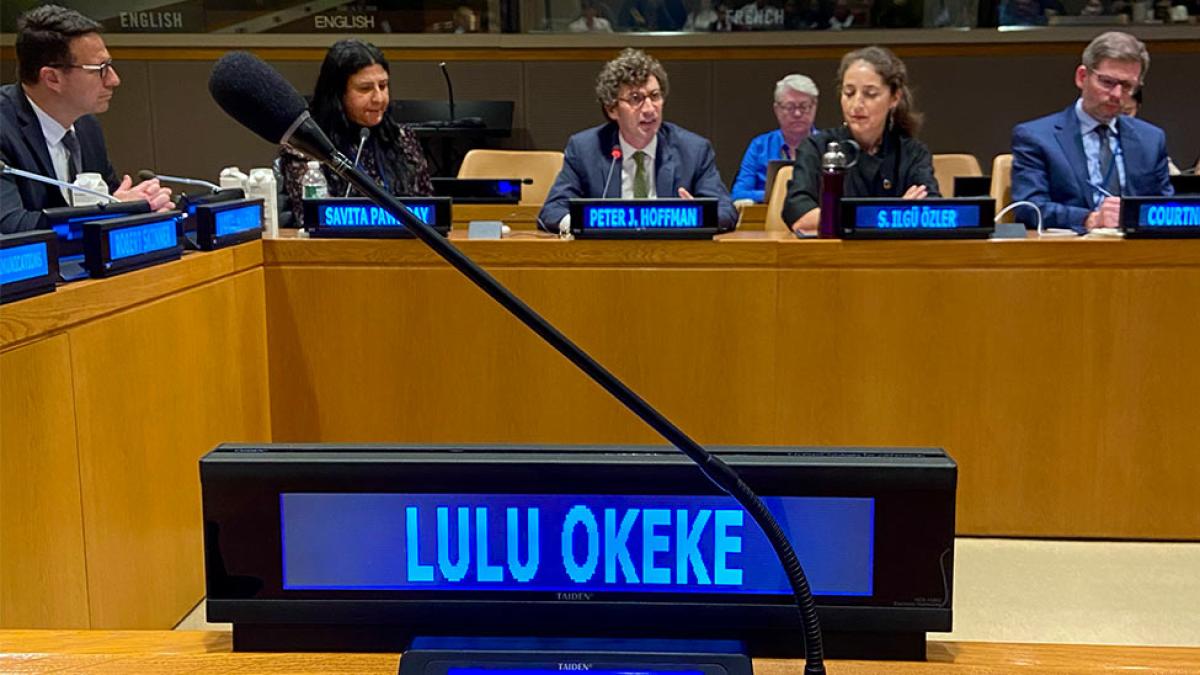
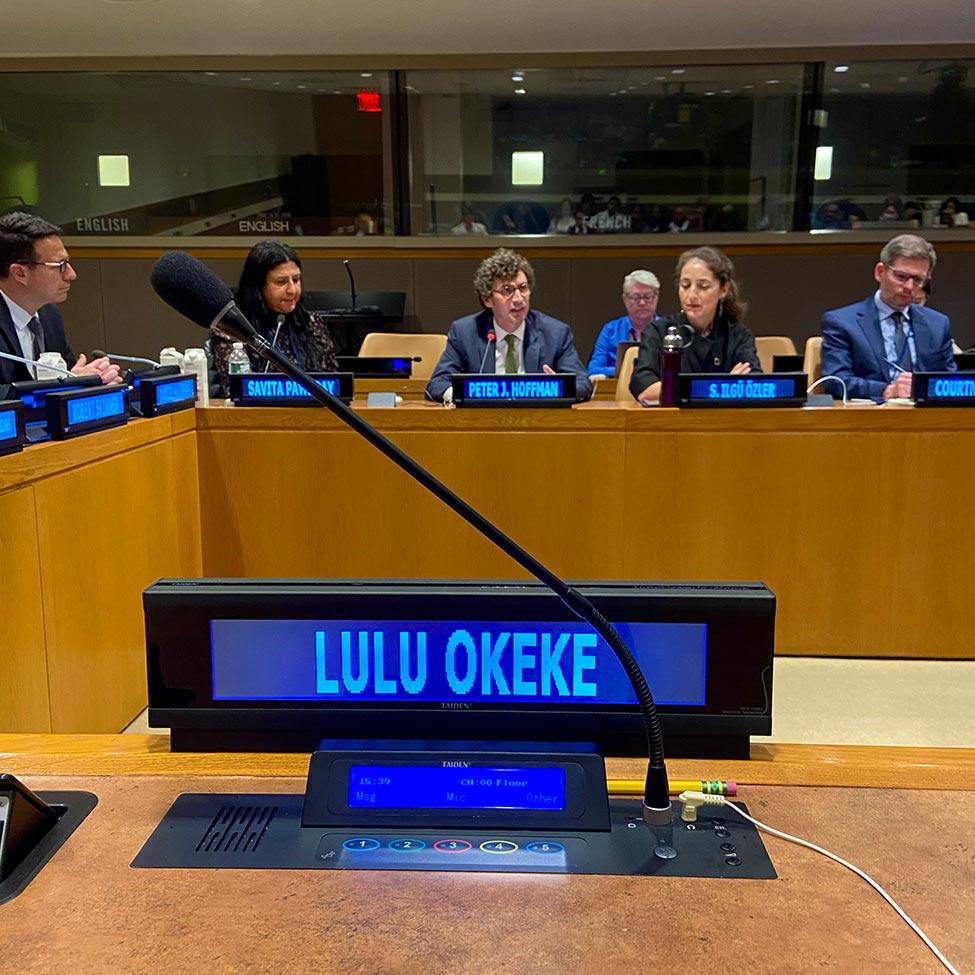
As part of the United Nations Millennium Fellowship, Lulu Okeke ’24, Global Professional Studies, represented Pace at an Academic Impact panel session called “Higher Education and Multilateralism: Academia Responding to Global Challenges” as part of UN Day on October 24, 2022.
The discussion focused on the relationship between higher education and the United Nations, particularly in response to global challenges and crises. Centering on the roles that faculty and students can play within this relationship, the first panel included professors, deans, and directors at prestigious universities who are involved in international studies.
The second panel featured Okeke and fellow students from peer institutions. The opportunity allowed Okeke to speak about her Millennium Fellowship project—an initiative to uplift girls and women around the world through letter-writing—and the impact that the Fellowship has had on her academic and personal growth.
Okeke is the third Dyson student to speak at UN Headquarters this month, joining Molly Rosaaen ’22, Political Science, who delivered a statement on youth disarmament education to the UN General Assembly First Committee and Taylor Mangus ’23, Political Science, who served on a panel on “Disarmament as a Solution for Peace” as part of the #Leaders4Tomorrow event.
Related Stories
On Wednesday, October 19, Taylor Mangus ’23, Political Science, was featured on a panel on “Disarmament Education as a Solution to Peace.”
On Thursday, October 13, 2022, Molly Rosaaen ’22, Political Science delivered a statement, drafted by Dyson College students, to the United Nations General Assembly First Committee.
A record-number 17 Pace University students have been accepted into the 2022 class of the United Nations Academic Impact and Millennium Campus Network Fellowship Program, the University today announced.
Q & A with Brooke Lyn Sicignano '25
Brooke Lyn Sicignano '25 has been acting since she was six years old. Now, through the Acting—International Performance Ensemble program, she's developing collaborative skills, exercising creative abilities, and waking up each day excited to learn more.
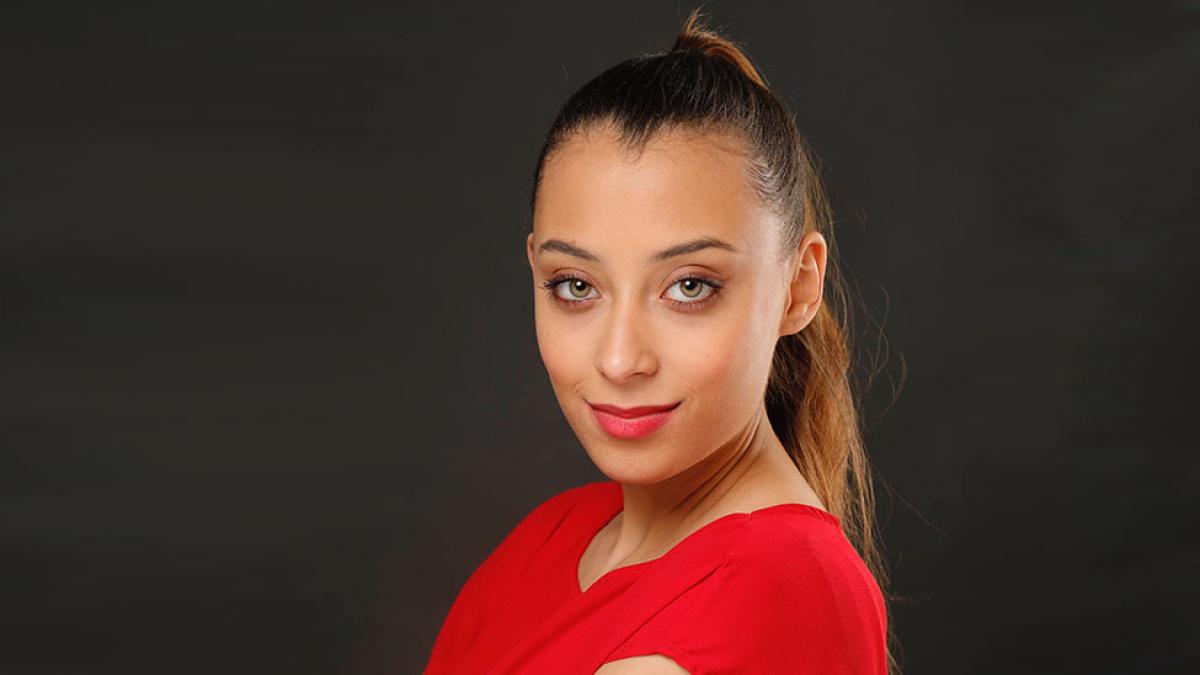
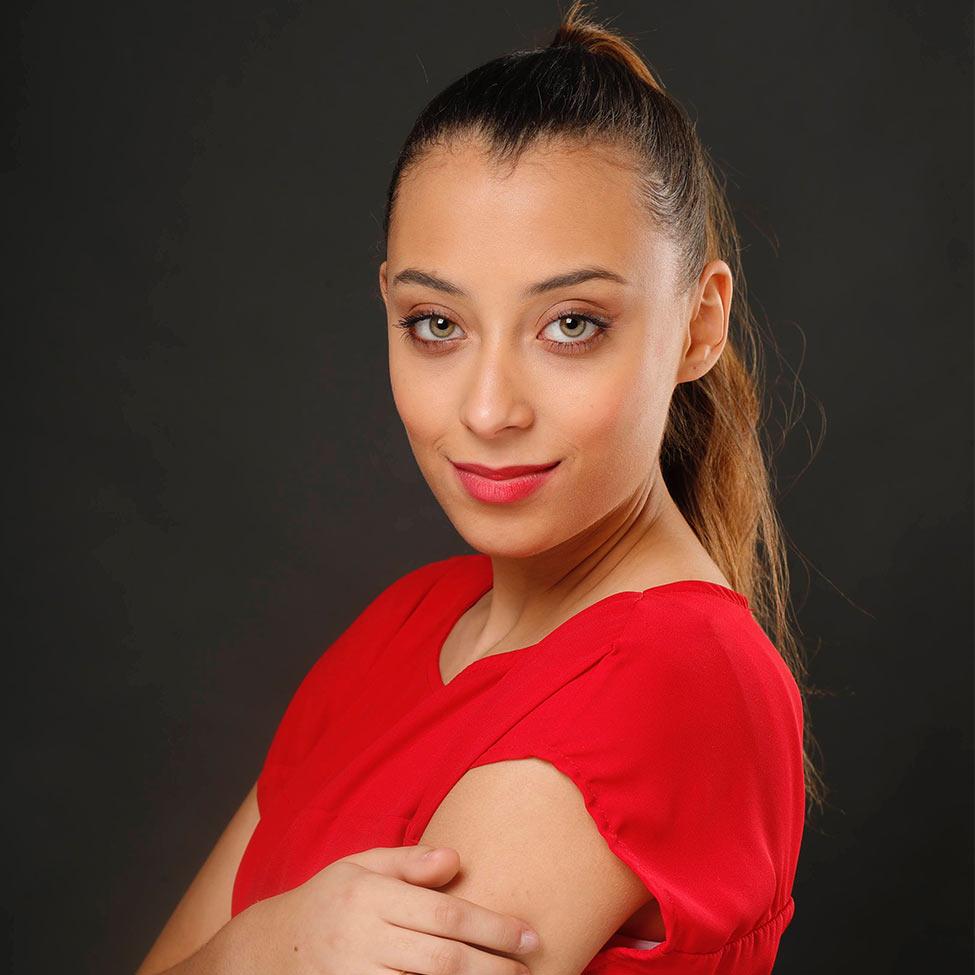
How did you become interested in pursuing a major in Acting-International Performance Ensemble (IPE)?
I discovered my love for acting when I was six years old. I saw The Lion King on Broadway and was completely captivated by the theater. I would go to the movies with my dad every Friday after school, and when the film was over, I would reenact certain scenes with him on our way home. In middle school, I auditioned for the school play, and we did a production of Oliver the Musical. Performing on stage for the first time in front of a live audience was euphoric. After my first performance, I knew that this was what I wanted to do for the rest of my life.
Why did you choose to attend Pace?
I wanted to attend Pace because it has one of the best acting programs in the country. I liked how students are set up for success and allowed to take control of their own education. I was also attracted to the existence of both a traditional campus in Westchester and one in New York City, giving me the best of both worlds.
What have your experiences been like with Pace School of Performing Arts? Have certain faculty members been instrumental in your academic journey?
Pace School of Performing Arts (PPA) has changed me for the better. This is the type of training I need to grow as an actor and as an artist. The IPE program is devising-based, and devising is creating original collaborative work. It has helped challenge me to think bigger and find inventive solutions to problems, but also develop my collaborative skills, and test and exercise my creative abilities. I wake up every day excited to learn.
My professors in IPE have been fantastic. Nora Woolley, Yokko [Yoshiko Usami Sienkiewicz], Carlyle Owens, and program heads Adrienne Kapstein and Ianthe Demos have pushed me to be the best artist and performer that I can be and have provided me with the necessary training to achieve post-graduation success.
You are a very vocal and active advocate for dyslexia and were part of the Dyslexia Task Force, with the Dyslexia Task Force Act recently passing in the NY State Senate. Tell us more about this legislation.
The Dyslexia Task Force Act examines and reports on appropriate and effective evidence-based screening intervention and support for students with and at risk of dyslexia and dysgraphia. These findings could improve the lives of hundreds of thousands of students statewide. My involvement began in 2018, when Assemblyman Robert Carroll asked me to be in a public service announcement for his bill to have mandatory state-wide screening for dyslexia. He then asked me to speak at a press conference for the task force and we were also interviewed on NY1.
Why is this work meaningful to you?
This is very important to me because I have dyslexia, dyscalculia, dysgraphia, and attention deficit disorder (ADD). Before I attended The Churchill School and Center (number one in the world for children with dyslexia), I attended public school and struggled a lot to keep up with my classmates. I was embarrassed for not performing on the same level and feared that my teachers would judge me. At Churchill, I ultimately graduated as valedictorian and was a recipient of the Winston Churchill Award, the highest honor a student can receive.
My story is the exception, but it should be the rule. So many children and young adults feel that they are not smart enough for college or feel that they would not succeed, so give up trying. In the prison system, the majority of inmates have learning disabilities. If they had received a proper education that catered to their needs and gave them the tools to learn how to use their gifts and overcome any challenges they may have faced in school, the world would be a better place. This Act is going to impact lives so that no child will suffer the way I and countless others have.
Have you had internships as a student, and if so, were they obtained through Pace?
I currently have an internship with Dan Goldman who is running for Congress in the 10th Congressional District which includes the Pace New York City campus. My role as an assistant field organizer involves canvassing, making phone calls, organizing events, and speaking with voters. In the future, I plan to apply for an internship in the entertainment industry through Pace.
[The Acting-IPE program] has helped challenge me to think bigger and find inventive solutions to problems, but also develop my collaborative skills, and test and exercise my creative abilities. I wake up every day excited to learn.
What activities and organizations, if any, have you been involved with as a student?
I’ve been very focused on my studies and making the most of my training. I started a nonprofit to help dyslexic children called The 1 in 5 Education Foundation, since I want to help children who were not as fortunate as I was. I would like to help create a world where no child is ashamed of their gifts, to have them know they are not alone, and to give them the confidence and tools they need to face their challenges head on in life.
What would you like to do upon graduation/what are your career goals?
Upon graduation, I want to start auditioning and land a project in either television, film, or theater, with the long-term goal of having a successful career as an actress.
What advice, if any, would you like to give to our current students?
My advice for current students is to do what you love. Stay strong and positive, and never let anyone or anything stop you from pursuing your dreams. Be kind and respectful to others. Most of all, believe in yourself, as no one will believe in you, if you do not first believe in yourself.
More Student Stories
"To be able to share the stage with my classmates and living in New York City is truly a blessing. Being taught by the best of the best is truly an honor," said Victoria Beaudion '23, BFA Commercial Dance.
Madelyn Aryanna Garcia '23, Environmental Science, has found a natural fit at Pace.
I chose Pace because the Forensic Science major is very unique as compared to other programs, and there is a great success rate in job placements for graduates. Forensic Science is solely based on facts and data collected during investigations, and as someone who values justice in our society, I wanted to contribute in the best way I knew how, which is the scientific approach. This major combines science and criminal justice, which made it an easy choice for me.
Faculty Focus: Professor Randolph McLaughlin, A Force of Justice
Professor, Civil Rights Attorney, Precedent Setter, Social Justice Advocate. Randolph McLaughlin has been a stalwart on the Elisabeth Haub School of Law at Pace University faculty since 1988, teaching civil procedure, torts, and labor law.
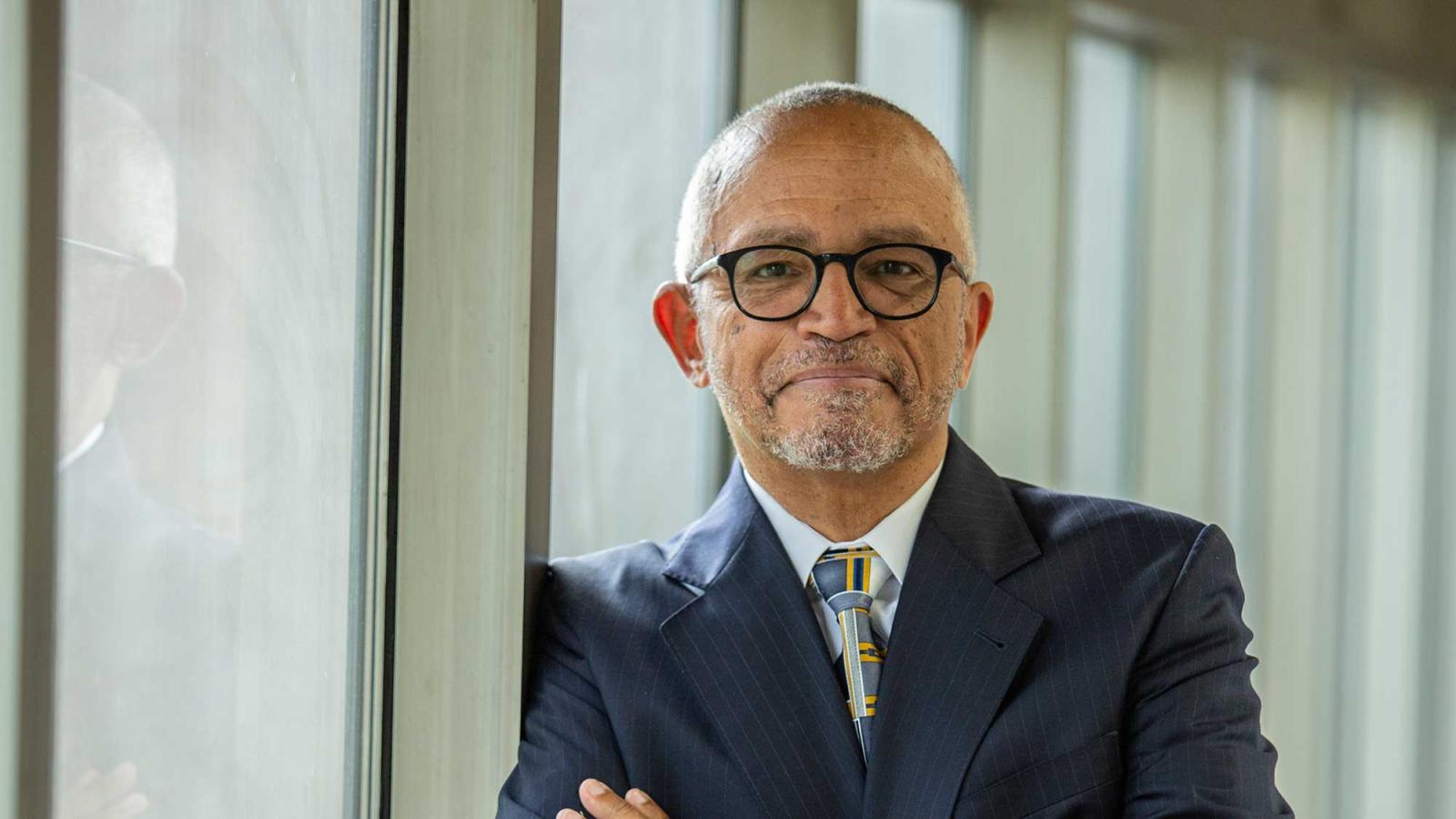
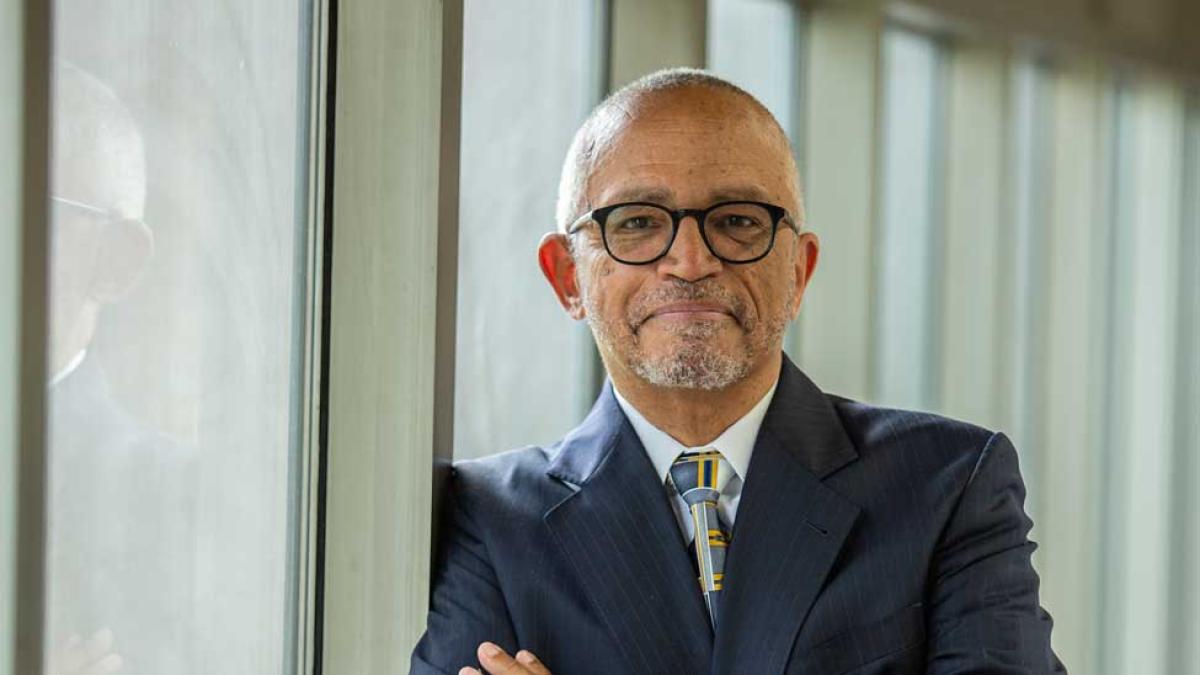
Professor, Civil Rights Attorney, Precedent Setter, Social Justice Advocate. Randolph McLaughlin has been a stalwart on the Elisabeth Haub School of Law at Pace University faculty since 1988, teaching civil procedure, torts, and labor law. He also co-chairs the Civil Rights Practice Group of Manhattan’s Newman Ferrara LLP, along with his wife Debra Cohen, an adjunct faculty member at the Law School and Haub Law graduate. Prior to all this, McLaughlin made a name for himself as a civil rights activist and attorney, pioneering new legal strategies to address incidents of racism, voting rights litigation, and more. Now, some of the very cases and individuals that he represented are at the forefront of a feature film and forthcoming documentary. We sat down with Professor McLaughlin to discuss the influential impact he has had throughout his career and what the future may hold for civil rights attorneys.
A landmark case you handled, which set a legal precedent for today’s court battles on racial violence, is the subject of a forthcoming documentary. The film highlights a racist attack that took place in the home state of the Ku Klux Klan, and showcases the role your strategy has played in decades of civil court victories. After Klansmen shot and injured five Black women in 1980 Chattanooga, Tennessee, the women were able to take the KKK to federal court using the long-forgotten Enforcement Act of 1871. Also known as the Ku Klux Klan Act, it was enacted to curb KKK violence after the Civil War. The documentary, some of which was filmed at Haub Law, is scheduled for release this year. Can you tell us about how you developed your strategy in this case?
Four African-American women were out on a Saturday night in 1980 in Chattanooga, Tennessee, when three Klansmen shot at them. More than 100 shotgun pellets were found in one woman’s legs. Two of the Klansmen were acquitted of all charges. One of them, who basically confessed, was convicted of simple assault, served nine months of a sentence and got out on good behavior. At the time I was at the Center for Constitutional Rights, which was part of the National Anti-Klan Network, so we sued the Klansmen.
I was an African-American history major, and I remembered reading about Klan violence and Reconstruction, so we looked back at those periods and found this 1871 law, called the Ku Klux Klan Act, which was passed to give a federal cause of action to victims of Klan violence. We dusted it off and waited for the right opportunity, and sure enough we didn't have to wait too long. We filed a suit as both a class action for all the Black residents of Chattanooga, and as a damages action for the five women. We tried the case and won—got over half a million dollars and a judgment. It was the first case using that statute to get a money judgment against the Klan.
I don't think winning a case like that is much of a long shot anymore. Law tends to reflect society. Judges aren't like some guru living on top of a mountain somewhere, they're reading the same stories, they walk the same streets, they watch the same TV shows we watch. And I think with the Black Lives Matter efforts across the country after the death of George Floyd, and then top that off with the January 6 attempted coup at the Capitol, judges have to realize if they don't step in, then this can happen again.
After the 2020 election, the NAACP used the Act in a lawsuit against former President Donald Trump and the Republican National Committee for systematically trying to disenfranchise Black voters. Also, Representative Bennie Thompson, a Democrat from Mississippi, has more recently sued Trump, his former attorney Rudy Giuliani, and two far-right militia groups under the law, alleging they conspired to prevent lawmakers from certifying President Joe Biden's victory by inciting and participating in the January 6 insurrection.
A feature film that premiered nationwide last September, The Killing of Kenneth Chamberlain, is based on the true story of a case that you and your wife, Professor Debra Cohen, have worked on for more than 10 years. In 2011, Kenneth Chamberlain, an elderly African American veteran with bipolar disorder, was killed by police officers sent to check on him after his medical alert device was mistakenly activated. The film recounts the police’s forceful response to this non-threatening situation and provides a view of the reform needed in policing tactics and our justice system. Where does that case stand now?
This film provides a great opportunity not only to bring the case into national focus, but to highlight how police respond to calls, how they police in African-American communities, and how they are trained for situations involving people in a mental health crisis. What was done was a text book case of what not to do if their intention was to provide assistance.
When the police arrived, Mr. Chamberlain was sleeping in his bed, and he made more than 60 attempts to explain that he didn’t call for help, did not need help and didn’t want to open his door. When we heard the audio recording, we were shocked at the inhumanity demonstrated by law enforcement.
Debra and I were asked to join the case by colleagues and fellow Haub Law alumni Mayo Bartlett and Wali Muhammad in 2012. A $21 million civil rights lawsuit was filed in federal court against the City of White Plains and several police officers. The legal fight for justice has spanned over the past 10 years, with a case currently still pending in federal district court in White Plains. Less than one year into legal proceedings, a grand jury declined to vote for an indictment, causing an uproar in the community and among social justice advocates. Another letdown came in 2017, when the district court dismissed most of the claims contained in the lawsuit and excused several of the original defendants, including police officers.
Following four-years of litigation, including a trial, in 2020, the Second Circuit US Court of Appeals restored claims of unlawful entry and excessive force. We are now preparing for trial and hope that with the need for police reform gaining traction across the country, justice for Chamberlain can finally be achieved.
Twenty-six years ago, you and your wife Debra handled the case of Charles Campbell, who was killed by an off duty New York City police officer at a deli in Dobbs Ferry, New York. The officer was convicted of second-degree murder in a criminal trial. You and Debra successfully tried the subsequent civil case before US District Judge Constance Baker Motley, a civil rights icon, with the help of Pace students. How do you view working with students in such cases?
I went into teaching in order to expose students to the value and rewards of civil rights practice. While I am a full-time law professor, I also maintain a selective civil rights caseload. Whenever possible I involve students in that work. My students have served as active members of a trial team, participating in the writing of briefs and sitting in the courtroom with the other attorneys. I involve the students in all aspects of the case and share with them my strategies as we pursue justice for our clients.
I went into teaching in order to expose students to the value and rewards of civil rights practice. While I am a full-time law professor, I also maintain a selective civil rights caseload. Whenever possible I involve students in that work.
How did you get your start in civil rights law?
Racism didn’t directly affect me that much growing up in New York City, but I was fascinated by the law. By age 10, I was reading law books. William Kunstler was a hero to me. In high school, the Chicago Seven trial was all over the news. It was the binding and gagging of Black Panther Bobby Seale in the courtroom that made me say, this is wrong, I’ve got to get involved.
During my second year at Harvard Law School, legendary defense attorney William Kunstler came to speak. He’s saying things like, “I need black lawyers to get involved in this kind of work with us because we can’t do it on our own.” He’s up there on the stage with Black Panthers and Native American activists, and there I am. I was a really shy kid. But after the lecture I worked my way up and said, “I’ve followed your career since I was a kid and I want to do what you do.”
He looked at me and said, “Here’s my card. Look me up when you get back to New York.” And I did.
How did you build a civil rights law practice?
Lucas A. Ferrara, the co-founder of Newman Ferrara in Manhattan, had been practicing real estate law for more than 25 years, he wanted to expand the work of the firm into the civil rights field.
The firm asked Debra and me to co-chair the civil rights practice group at the firm. When I brought up the controversial nature of some of their cases, they said, “We love controversy. Bring it on.”
It’s been a happy marriage. Lucas and Jon Newman have both assisted us in our civil rights cases, and their insight has been invaluable. Ultimately, if you can create a workable business model, then the good work can expand. There’s more than enough injustice to go around.
For victims, the legal process itself can be a kind of therapy. When I see a client who first comes to us really almost in post-traumatic stress, they can’t get through a conversation without crying. Within a few months, they’re giving it back to us, saying, “Well, what about this?” and “I want to do this.” They are starting to feel empowered and engaged, and the hopelessness is dissipated. Whether we win or lose the case, they feel at least a small amount of closure.
How did you begin practicing law with your wife?
Debra was 39, a former salesperson and marketer, when she applied to Haub Law in 1995. She was interested in civil rights law, and the school’s catalog listed me as a social justice lawyer. She signed up for my class. A few weeks into the class, I announced I had a new civil rights case and needed interns, and Debra sent me her résumé.
At the end of our interview, she stopped at the door and asked me if I had heard about a case involving the shooting of an African-American man, Charles Campbell, in a deli parking lot in Dobbs Ferry. By that time the family of the victim had already contacted me about representation. She said that she lived there and every weekend she joined family and friends of the man who was shot to demonstrate at the deli and to keep visibility on the case and pressure the district attorney to prosecute the police officer who shot him. After she graduated, I hired her, and that’s how it began. We worked together on the Campbell case. In 2001, we were married, and we hung a shingle in the Bronx not long after.
What do you see as some of the challenges facing civil rights lawyers today?
Frankly, the Supreme Court. With the six conservative judges in the majority we could face an onslaught of reversals in the civil and constitutional rights fields. Most notably, the landmark decision in Roe v. Wade is under attack and could be reversed this year. With the respect to voting rights, the Supreme Court in Shelby County v. Holder, gutted Section 5 (preclearance provision) of the Voting Rights Act of 1965, and now the Court is primed to eliminate Section 2 of that Act that has been critical in securing minority representation at all levels of government. In the police reform area, the Supreme Court seems reluctant to reverse decisions such as Graham v. Connor that set a very high burden on plaintiffs in police misconduct cases. So the future is not bright in the Supreme Court—for now. But that does not mean that there is nothing for us to do today. The struggle continues. The forces of justice have been fighting in this country since 1619 to achieve equal rights and justice. At the same time, the opponents of freedom are just as active now as they have been since the founding of this country. The question for each of us, as lawyers, is where do you stand on the barricades—with the people or the enemies of the people.
Kevin Sylvester '14: Love What You Do
From the Marine Corps to becoming a police officer to having his first child during his second year of law school, Kevin’s journey to where he is today has been nothing short of interesting and a true display of determination.
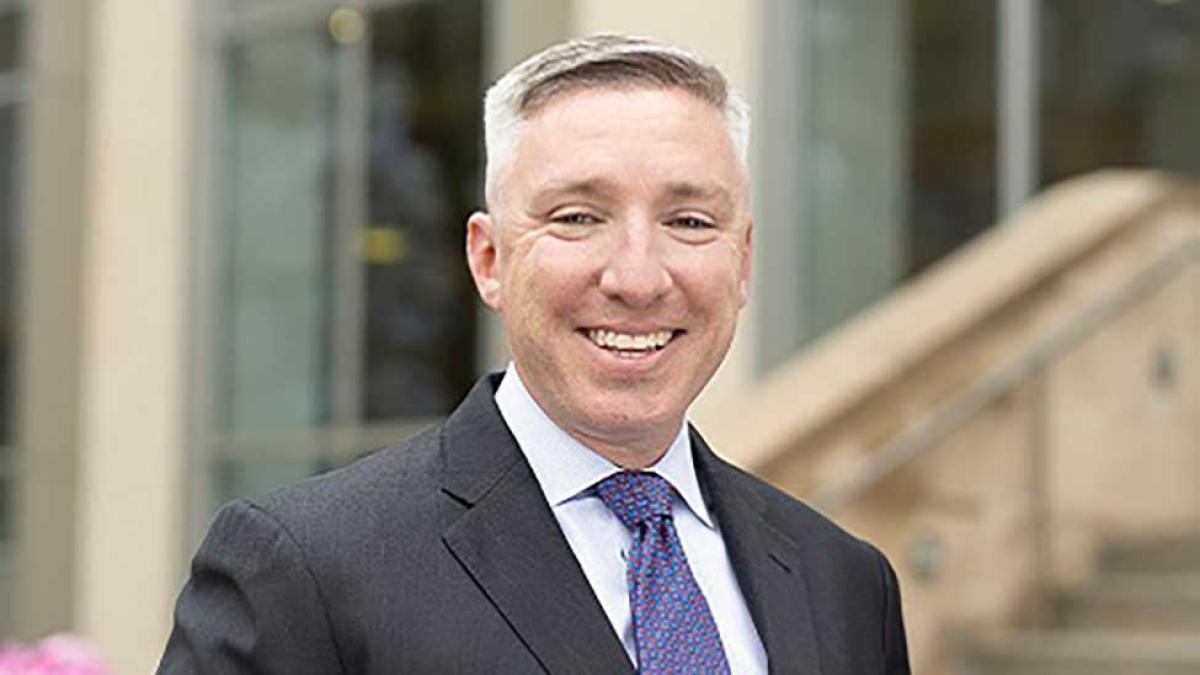
Chief of Police with the Ossining Police Department, Kevin Sylvester’s path to law school was not on the straight and narrow. After being kicked out of college, Kevin took time to reflect on what path he wanted both his life and career to take. From the Marine Corps to becoming a police officer to having his first child during his second year of law school, Kevin’s journey to where he is today has been nothing short of interesting and a true display of determination.
Did you go straight to law school from undergrad?
I got kicked out of college the first time I attended. It wasn’t that I was having too much fun. I was just an immature kid who was probably depressed and unprepared for living independently and studying full time. I stopped going to class and I left there with lots of credits, but no direction. It was the best thing that ever happened to me because it allowed me to reset and find my fire. I thank god I didn’t scrape by and finish because I’d probably be stuck in a job I hate, doing something that bores me. After leaving school, I joined the Marine Corps and then the police department.
With a police and military background, what made you decide to go to law school?
I always wanted to go to law school. Though most people finish high school, go to college, and directly to law school, I wasn’t ready for that. I didn’t finish my undergraduate program until I was 30. By that time I was working overnight shifts in a police department. Police officers in New York can retire after twenty years so I figured a law degree would give me the opportunity to retire and work a more “normal” schedule.
Do you remember your first day at Haub Law?
Absolutely. Most of the students were nervous but I’d been through so much. Many people feel an obligation to perform when they get to law school, but I already had a good job. I knew I didn’t HAVE to be here. I could have walked out at any time. I was here because I wanted to be here. I chose to be here. It’s a completely different perspective and really allowed me to enjoy my time here. I met some of my best friends that day. Hi Kaitlyn!
What were some of your biggest struggles during law school?
My son was born the first week of my 2L year. If you ever thought law school was tough, imagine reading cases in the delivery room! That’s not even an exaggeration. Nothing in law school came natural to me. I had to work hard and grind. When my son was born, I was terrified I would fall behind and never catch up so his first book was Contracts: Cases and Doctrine.
Looking back, what do you miss most about law school?
I live for the challenges. I truly miss the long days and nights of studying in the library. Even though we were stressed out and felt a ton of pressure, we did it together. It may have been difficult but I have really fond memories of the nights we locked in to prepare for exams, loaded with snacks, together with friends. I really appreciated the opportunity to work with so many incredibly smart students who went on to be wildly successful attorneys. I keep in touch with many of my former classmates. Networking is everything in this business. My alumni network is where I go for professional advice, for friendship, and for motivation.
Moving on to present day, you are the police chief for Ossining—what is your day-to-day like?
During orientation at Haub Law we visited Cuddy + Feder LLP and the managing partner, Chris Fisher, was asked, “as a partner, what is your day like.” His response changed my life. He said, “I’m a business owner—my day is from when I open my eyes to when I close my eyes.” That moment changed my life. I want to spend my time working on projects I believe in. When I know my energy is benefiting others, I never want to stop. My work day now really is when I open my eyes (around 5:00 a.m.) until I close my eyes (around 10:00 p.m.). People rely on me to keep them safe, to help raise their children, and to keep them informed. If done right, it’s a heavy burden and the work never really ends.
I want to spend my time working on projects I believe in. When I know my energy is benefiting others, I never want to stop. My work day now really is when I open my eyes (around 5:00 a.m.) until I close my eyes (around 10:00 p.m.).
What is most rewarding about your job?
I love making people smile. Sometimes it’s speaking with their kids and sometimes it’s offering comfort in a difficult situation or with clients I might help them solve a complex problem. I really appreciate having the opportunity to help people better understand their world. I want to give people something to believe in.
Do you also maintain a law practice?
I started slow, but my practice is growing. I have a solo firm, supported by quite a few alumni who have taught me everything. Most of my work is transactional real estate work but I’m branching out and learning new things every day.
What are some of your passions aside from law enforcement?
This is the hardest question because I love to love things. I coach my kids in little league and I’m a huge fan of youth baseball. I love winter sports and recently switched from skiing to snowboarding. I love endurance sports—distance running, triathlon, anything except the obstacle course races. Those aren’t for me. I love spending time with my kids and my dog, but when I go to bed at night, I can’t wait to get to work in the morning because I forever have something exciting I want to work on.
They say if you love what you do you’ll never work a day in your life. That’s a lie. I work… a lot. But I love what I do so I don’t mind long hours. The thing I learned through the military, policing, and a legal career, is to spend your time doing things you can believe in because it makes it all worthwhile.
Had you not followed the path of law enforcement what do you think you would be doing?
I think policing saved me. It taught me so much about life and community. I’m afraid to think of what I’d have become without all the people I met throughout my career.
What is some of the best advice you personally have received?
One of my mentors told me that my debt for all her guidance was to pass it on. For all the good experiences I’ve had and all the support I’ve received, it’s my turn to pay it forward. My story might not resonate with everyone but I bet there are a couple of students still trying to find their “why.” If that’s you, let me know. A cold call may feel weird but I can’t count the number of friends I’ve made by reaching out to people who inspired me and making a connection.
Haub Law Alumna Lisa Denig ’09: ADR Pioneer
Lisa Denig has dedicated much of her career to pioneering Alternative Dispute Resolution (ADR) Initiatives within the New York State Court System. Recently, Lisa started a new position as Principal Settlement Coordinator for the 9th Judicial District within the New York State Unified Court System. “I am tasked with creating and expanding opportunities for ADR in all the courts in the 9th JD,” said Lisa. “Not long ago, settlement or mediation were thought of as secondary to years of discovery, enormous cost outlays, and time spent on trial preparation. That is no longer the case. Today, attorneys come prepared-at the preliminary conference - to discuss alternative ways to resolve their case. Alternative dispute resolution is not the wave of the future, it is the present.”
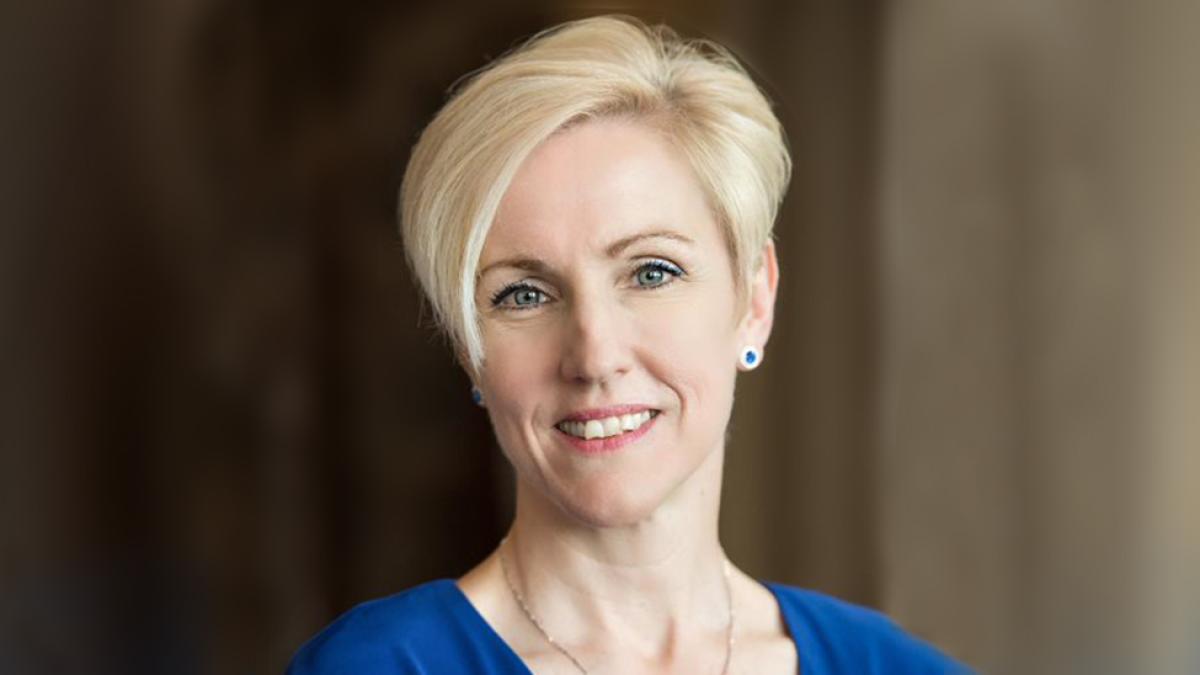
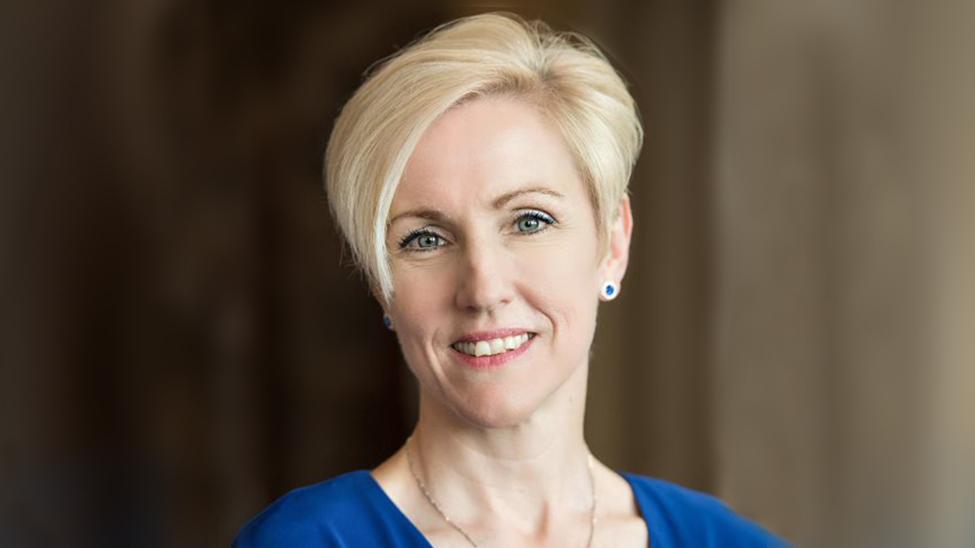
Lisa Denig has dedicated much of her career to pioneering Alternative Dispute Resolution (ADR) Initiatives within the New York State Court System. Recently, Lisa started a new position as Principal Settlement Coordinator for the 9th Judicial District within the New York State Unified Court System. “I am tasked with creating and expanding opportunities for ADR in all the courts in the 9th JD,” said Lisa. “Not long ago, settlement or mediation were thought of as secondary to years of discovery, enormous cost outlays, and time spent on trial preparation. That is no longer the case. Today, attorneys come prepared-at the preliminary conference - to discuss alternative ways to resolve their case. Alternative dispute resolution is not the wave of the future, it is the present.”
A dedicated alumna of Haub Law, Lisa is giving back to the law school in another way now: as an adjunct professor teaching Survey of Dispute Resolution Processes. Lisa is also an active member of Haub Law’s advisory board, the Board of Visitors. “Pace gave me the tools I needed to have a successful legal career after law school,” she said.
I am thrilled to remain involved with my alma mater and help set students on their path for ADR success. I loved my time as a law student and love that things have come full circle and I am now teaching at the school.
In 2019, Lisa Denig was appointed Special Counsel for Alternative Dispute Resolution (ADR) Initiatives for the NYS Office of Court Administration, overseeing one of the most innovative programs to date in the New York Court system: the creation and implementation of Chief Judge Janet DiFiore’s initiative, the New York State Presumptive ADR Program. The Presumptive ADR Program was to be implemented in all five boroughs in addition to three specialty courts inside New York City. A certified mediator herself, Lisa is a strong advocate for requiring early ADR in civil court cases and strongly believed in and advocated for the initiative long before it came to fruition.
Lisa notes, “In order to implement this program properly, I had to meet with bar associations, ADR groups and other stakeholders to incorporate them into the new program as well as provide the necessary training opportunities for court staff and outside lawyers. I worked with numerous committees to create rules, templates, develop a data tracking system, along with evaluation forms so we could actually see how the newly instituted program was working and report this to the Chief Judge.”
The program was a success, but it was an uphill battle at times. When asked about one of the biggest challenges she faced, Lisa answered: diversity. “I knew that there would be a diversity issue in the pool of mediators, but did not realize how serious it was. On the first day the mediation program was rolled out in New York City Civil Court, we had four cases that were amenable to mediation-all of whom spoke Spanish-and one Spanish interpreter. This brought home the issue of culture and diversity in mediation as well as all the concerns about access to justice that such challenges raise. From there, I made it a point to promote mediation trainings for diverse attorneys, connect with affinity bar associations, and more.”
Due in part to Lisa’s work, ADR plans were created that require litigants to attempt some form of ADR early in the stages of a civil case. The required ADR may include settlement conferences with judges or court staff, mediation, arbitration, or summary jury trials. Statistically speaking, the NYS Presumptive ADR Program is massive; Lisa notes that it deals with “over 1 million civil filings per year and more than 800,000 of those are in New York City alone.” In recent years, in recognition of her work advancing the Presumptive ADR Initiative, Lisa was recognized as one of New York Law Journal’s Attorney Innovators of the Year.
After serving as Special Counsel for ADR Initiatives for two and a half years, in 2021, Lisa accepted a position as Counsel to New York State Chief Judge Janet DiFiore. In this role, Lisa remained the Chief Judge’s liaison to the Presumptive ADR Initiative, which gave her the opportunity to remain active in the programs she spent years building. Previously, Lisa spent nearly eight years at the Westchester County District Attorney’s Office in a variety of roles. Today, Lisa is thrilled to be fully back in the ADR fold. “ADR is where my passion lies and I am excited to make an impact both in the classroom at Haub Law and also as Settlement Coordinator for the 9th Judicial District.”
